ISPOR Europe 2019
2-6 November 2019 | Copenhagen, Denmark
The leading conference for health economics and outcomes research
ISPOR Europe 2019 Convened More Than 5500 Healthcare Stakeholders in the Society’s Largest Conference To Date
ISPOR, the professional society for health economics and outcomes research (HEOR), concluded its ISPOR Europe 2019 conference the 6th of November in Copenhagen, Denmark. The conference convened more than 5500 global healthcare stakeholders and HEOR thought leaders representing more than 90 countries from all sectors of healthcare, including researchers and academicians, assessors and regulators, payers and policymakers, the life sciences industry, healthcare providers, and patient engagement organizations. The record attendance of ISPOR Europe 2019 marks the Society’s largest conference to date.
Easing the Economic Burden of Asthma
New Irish research reveals huge economic burden of asthma – Asthma Society of Ireland says “we are getting asthma management wrong”
- Asthma Society of Ireland – “we are getting asthma management wrong – structurally, it revolves solely around the asthma patient in crisis and fails in creating long-term control”
- Annual national economic burden of asthma = €472
- In 2017:
- 2.4 million GP and 625,000 Practice Nurse asthma consultations
- 421,000 Specialist and 133,000 Emergency Department visits
- 8,000 hospital admissions
- Implementation of an asthma self-management programme could reduce asthma hospitalisations by up to 50% and could potentially save €102 million
New research published today by the Asthma Society of Ireland, confirms the enormity of the asthma burden and contains, for the first time, up-to-date figures on the number of people affected by asthma in Ireland.
Easing the Economic Burden of Asthma – The Impact of a Universal Asthma Self-Management Programme1 is the first prevalence and impact assessment of asthma since 2001 and confirms the national economic burden of the chronic disease to be €472 million per year. The research supported by a grant from GSK Ireland and was conducted by Salutem Insights. Previous estimates into the large-scale impact of asthma on the Irish healthcare system under-estimated the number of people with asthma in Ireland. €102 million is lost each year in potential savings and action is now needed if we are to turn around patient care and reduce the economic impact.
Of the total annual €472 million economic strain, the cost of hospitalisations, emergency department visits and GP consultations accounted for 57% of total direct costs. In 2017, there was an estimated 2.4 million and 625,000 GP and Practice Nurse consultations for asthma respectively. There was also a significant burden in the hospital setting with an estimated 421,000 and 133,000 Specialist and Emergency Department visits respectively, along with almost 8,000 hospital admissions.
Speaking at the launch, CEO of the Asthma Society of Ireland, Sarah O’Connor, said: “The reality of asthma for our health system and our patients is made crystal clear from this research. It tells us that we are getting asthma management wrong – structurally, it revolves solely around the asthma patient in crisis and fails in long-term control.”
“We can see Emergency Department visits and hospital admissions. We can see that, in comparison to other countries in Western Europe, Ireland has the poorest mortality outcome from asthma and one of the highest asthma hospitalisation rates. We can quantify how many GP and nurse consultations are involved at primary care level. Uncontrolled asthma costs the individual and the state – research shows that 60% of Irish people with asthma do not have it controlled. Sadly, at present, six people in Ireland die every six days as a result of their asthma.”
“This research highlights the value of a universal asthma self-management programme at the macro-level, showing the benefits for the healthcare system, the cost savings and efficiencies and the potential impact of the measure as a whole.”
Marcus Butler, Medical Director of the Asthma Society of Ireland and Associate Professor, UCD/Consultant Respiratory Physician, St Vincent’s University Hospital said: “Everyday in Ireland, children and adults are being treated in emergency departments and out-of-hours GP practices up and down the country for uncontrolled asthma symptoms, when they should instead be facilitated in getting on with their lives with minimal intrusion from what is largely a very treatable condition. International data has suggested that there is substantial global variation in the economic burden of asthma over time, in addition to the ultimate and most tragic cost of asthma, asthma-related death, a largely preventable catastrophic event.”
“Asthma death rates are falling in many developed countries, but alarmingly, they appear to be rising in Ireland. This research contends that a national self-management programme for all asthma patients, irrespective of age, has a high likelihood of substantial cost savings, not to mention the precious safe-guarding of human life and wellbeing that underpins all of our efforts in the asthma community.”
Eimear Caslin, General Manager, GSK Ireland said: “GSK is proud to support this research, which highlights the public health burden of asthma in Ireland. This research is significant as it quantifies this for the first time but also outlines how a national self-management programme could improve asthma patients’ care while reducing costs. GSK has been committed to improving the lives of respiratory patients in Ireland for over 50 years and we are delighted to continue our support for the Asthma Society as part of that.”
Concluding, Sarah O’Connor said: “The economic burden of managing asthma for individual patients is very real and it impacts greatly on healthcare outcomes. A universal asthma self-management programme can reduce both the cost factor and the fear factor in asthma management in Ireland. We wholeheartedly advocate for it, along with a number of other important policy changes aiming to eliminate asthma deaths and transform the lives of people with asthma.
Patients who want help and support to manage their asthma can contact our free Asthma/COPD Adviceline on 1800 44 54 64, where a nurse will assist them.
Results from the Easing the Economic Burden of Asthma research:
- 890,000 people in Ireland experience asthma at some stage of their life.
- €472 million: the amount asthma costs the state per annum.
- €1,242: The annual average cost of asthma per person.
- 2.4 million: the number of asthma GP consultations annually.
- 625,000: the number of asthma Practise Nurse consultations annually.
- 8,000: The number of asthma admissions to hospital every year.
- Four minutes: How often someone in Ireland visits an Emergency Department with asthma.
- 1 in 13 people in Ireland currently have asthma.
- 1 in 10 children currently have asthma.
- 1 in 5 children experience asthma at some stage in their life.
- One person dies every six days as a result of thier asthma.
- Compared to 14 other European countries: Ireland had the highest death rate from asthma in 2015.
- Seven: The average number of work days missed every year due to asthma.
- Five: The average number of school days missed every year due to asthma.
- Ireland had the second highest rate of asthma hospital discharges in Western Europe in 2016.
- 40,593: The number of children registered under the Asthma Cycle of Care programme.
- 2.68 days: Average length of stay with an asthma hospital admission.

National Conference on healthcare outcomes addresses challenge of integrating health outcomes in policy
Better integration of data on healthcare outcomes will improve decision-making in health policy and healthcare reimbursement, according to Professor Jan Sorensen, Director of the Healthcare Research Outcomes Centre at RCSI.
Speaking ahead of Ireland’s second National Healthcare Outcomes Conference, Professor Sorensen said that greater efficiency could be achieved if the health service consistently integrated robust outcomes data into its decision-making processes.
“Ireland’s health services continues to struggle to meet multiple and escalating resource demands and there is much debate relating to appropriate access to diagnostic and therapeutic interventions. The only sustainable approach to the dilemma of increasing demands in a resource-constrained system is to base decision-making and resource allocation on clear outcomes based criteria. If the system doesn’t get to grips with this now, it will face even greater challenges as Ireland’s population gets older.”
The conference facilitated a discussion about the value as well as challenges of integrating healthcare outcomes data in health policy, healthcare decision-making and healthcare procurement. The conference also aimed to better connect patients’ experience of a healthcare outcome, with perceptions of the outcomes from the perspective of clinicians and policy-makers.
Prof. Sorensen said: “It is never easy for a clinician or policy maker to make a decision which compares the needs of one group of patients with another. Yet that is a decision that is made every day in healthcare. Only by using robust information on outcomes can those decisions be made fairly and with the interests of all users of the health service in mind.”
The Healthcare Outcomes Research Centre (HORC) at RCSI is a leading Irish research centre dedicated to the development and dissemination of evidence-based research on healthcare outcomes that will inform healthcare policy and improve patient outcomes.
PMI 30th Annual Business Day
30th Annual Business Day
On behalf of the PMI, I’m delighted to announce details of our 30th Annual Business Day, which takes place on April 4th in the Radisson Blu, Golden Lane.
Our theme for the day is “Future Proofing the Pharma Industry”. We will have a mix of industry and non industry key opinion leaders and subject experts sharing their expertise on the day.

Well-known broadcaster, columnist and author Ivan Yates will be reprising his role as our MC for the Business Day
Throughout the day, our panel of speakers will discuss the changes in healthcare, evolution of technology and the challenges facing our industry on National and European levels.
After the formalities of the Business Day, we’ll be celebrating our milestone birthday with some dinner, drinks and a chat with a football icon from the year we were born……
I hope you can join us for what promises to be an insightful, engaging and fun event!


Speakers:
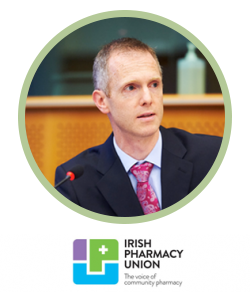
Darragh O’Loughlin, Secretary General at Irish Pharmacy Union
“Community Pharmacy trends across Europe & the US.”
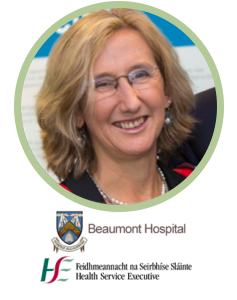
Prof Orla Hardiman, Consultant Neurologist at Beaumont & National Clinical Lead – Neurology at HSE
“Finding Better and More Reliable Outcomes for Rare Diseases”
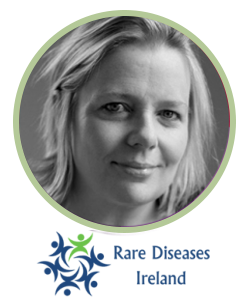
Vicky McGrath, CEO at Rare Diseases Ireland
“Patient Access to Services in Rare Diseases”

Ian Ray, Associate Director & Joe Marshall, Senior Strategist at Pegasus UK
“Influencing positive patient behaviour”
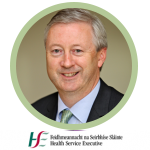
Professor Martin Curley, Director of the Digital Academy and Open Innovation at the HSE
“Digital Disruption and Transformation”
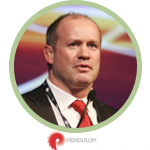
Frankie Sheahan, Founder & Event Director at Pendulum Summit
“The journey to the Summit”

Jack Cochran, MD, Author & former CEO of The Permanente Federation
“Where will Physicians be When Healthcare is Transformed?”
View Speaker bios here
 

An evening with: Packie Bonner, former Irish Goalkeeper
Remembering the golden days of Irish football from 1990….
Diamond sponsor:


ISPOR Europe 2018
10-14 November 2018 | Barcelona, Spain
The leading conference for health economics and outcomes research
ISPOR Europe 2018 Drew Record-Breaking Attendance With 5500+ Registrants Representing All Sectors of Healthcare
ISPOR Europe 2018 drew 5507 healthcare stakeholders representing 70 countries from all sectors of healthcare, including policy makers, global thought leaders, researchers and academicians, public and private payers, decision makers, and patient representatives. The conference centered on the timely theme, “New Perspectives for Improving 21st Century Health Systems,” and included a wide variety of compelling topics in health economics and outcomes research (HEOR).
